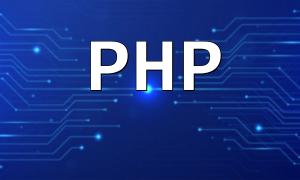PHP is a widely used server-side scripting language commonly used for developing web applications. It works closely with HTML to generate dynamic web content, supports database interactions, and integrates with web servers. Due to its simplicity, powerful features, and fast development speed, PHP has become one of the most popular programming languages worldwide.
PHP was initially created by Rasmus Lerdorf in 1995 to monitor personal web traffic. In 1997, Andi Gutmans and Zeev Suraski joined the project, transforming PHP into a fully-fledged programming language. PHP3 was released in 1998 and quickly became popular. Subsequent versions like PHP4 and PHP5 introduced object-oriented programming and other modern features. PHP7 further optimized execution efficiency and the type system.
PHP's primary application is in web development. With PHP, developers can build a wide variety of websites, including dynamic pages, corporate websites, social platforms, blogs, etc. PHP also supports multiple databases like MySQL and PostgreSQL, offering efficient data storage and management solutions.
In addition to web development, PHP can also be used to build desktop applications. By using PHP-GTK, PHP applications can be packaged into executable files and run on multiple operating systems such as Windows, Linux, and macOS. Furthermore, PHP can combine with GUI toolkits like Qt to efficiently develop desktop applications.
PHP is also widely used for system administration. Developers can write powerful scripts for automating tasks like configuring server environments, backing up data, and monitoring systems. Thanks to its simplicity, PHP is often the first choice for many developers involved in system management and automation tasks.
PHP is known for its simplicity, making it easy to learn and use, which greatly accelerates development. Compared to other programming languages, PHP requires fewer lines of code, significantly speeding up the development of web applications. This allows developers to focus on user experience and innovative features to quickly launch new products or improve existing ones.
Due to PHP's relatively small codebase, maintenance and expansion are easier. Developers can quickly modify, fix bugs, or add new features to meet changing requirements. Moreover, PHP's many tools, libraries, and frameworks make it cost-effective to build high-performance, scalable web applications.
PHP is one of the most popular programming languages, with a large number of job opportunities available for developers. PHP developers are in demand across multiple industries, and due to the high demand, PHP-related positions often offer attractive salaries.
Before learning PHP, it is essential to understand HTML, CSS, JavaScript, and jQuery. Additionally, basic knowledge of data structures and algorithms is also important. Learning technologies such as MySQL, AJAX, and JSON will also help you develop dynamic web applications more effectively.
Start by mastering PHP's basic syntax: variables, arrays, functions, conditional statements, loops, and object-oriented programming. Then, learn how to apply PHP to web development, desktop applications, and system administration. Finally, explore how to use PHP frameworks such as Laravel, Symfony, and CodeIgniter to improve development efficiency.
There are numerous online resources for learning PHP, including code repositories, blogs, video tutorials, learning paths, communities, and online discussion platforms. Additionally, you can practice PHP through open-source frameworks like WordPress, Joomla, and Drupal.
PHP developers have many career pathways, including web development, system administration, mobile development, and database management. With experience, developers can transition into leadership roles, guiding teams and mentoring junior PHP developers.
PHP developers earn competitive salaries. According to PayScale.com, the median salary for a PHP developer is $68,000, with more experienced developers earning upwards of $100,000 annually. Factors such as work experience, project type, location, and company size influence salary levels.
The career outlook for PHP developers is promising. As global technological demand continues to grow, PHP developers are becoming increasingly important. With the increasing popularity of PHP, developers will have many opportunities to work with innovative companies and continue advancing their careers.
PHP has become one of the most popular web development languages worldwide, used by businesses, organizations, and individuals to build robust, high-performance web applications. Due to its rapid development capabilities, PHP is widely applied across commercial, social, scientific, and educational industries. Therefore, learning PHP and mastering its uses will put developers on a creative, innovative, and high-paying career path.









